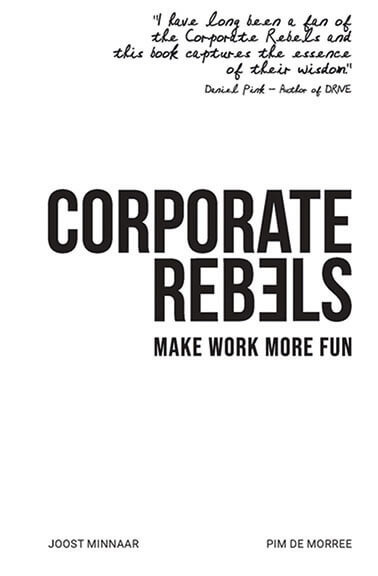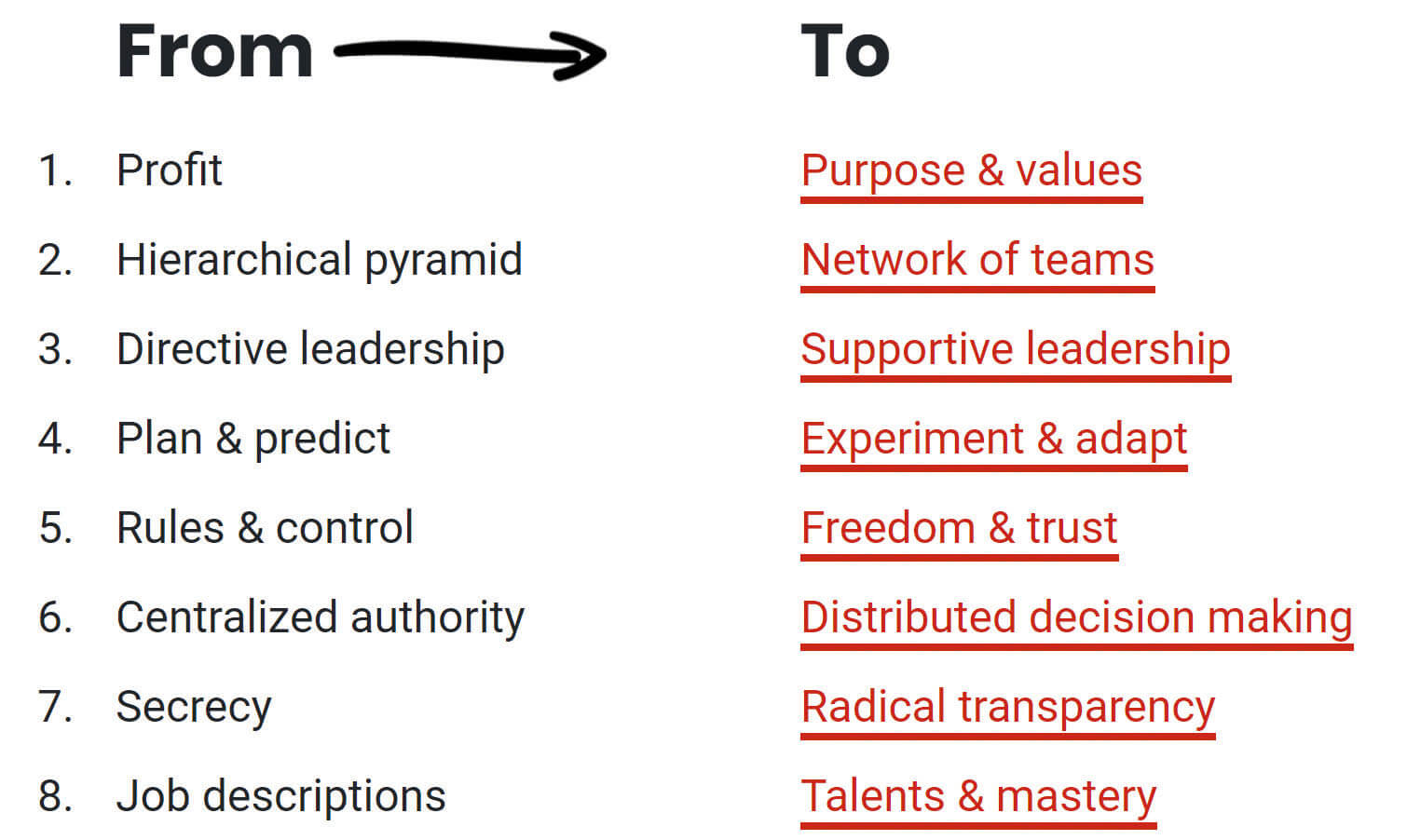Work and fun: not mutually exclusive as the Corporate Rebels are happy to prove
 THE AUTHORS are on a mission to make work more fun. Their mantra is “workplaces can be better”, and this is a book aimed at managers and minions alike.
THE AUTHORS are on a mission to make work more fun. Their mantra is “workplaces can be better”, and this is a book aimed at managers and minions alike.
The blog that spawned the book is widely read worldwide and has been featured in the serious press from the New York Times and Forbes to the BBC. This first edition is laden with praise for the Rebels from management gurus, CEOs and even the Chief Happiness Officer of Happy Ltd (and what he doesn’t know about happiness presumably isn’t worth knowing).
Joost Minnaar studied at the University of Barcelona and was working in a corporate job before leaving to co-found Corporate Rebels with Pim de Morree. De Morree was in a similar position, having completed his studies at the Eindhoven University of Technology two years earlier.
Make Work More Fun tells the story of how Minnaar and De Morree quit the corporate 9-to-5 and set off around the world visiting their “bucket list” of progressive companies that have taken the plunge and are doing business differently. But rather than being a workplace-heavy travelogue, the book is divided into eight sections relating to their principles of how to reform the workplace — and how to make work more fun, of course.

Those principles include such things as replacing a hierarchical management structure with a network of autonomous teams, and migrating from rules and control to freedom and trust. Some of the companies they visit on their bucket list have implemented several principles, and thus make an appearance in multiple sections. I found that in the first third of the book, references to companies mentioned previously required a quick flick back to an earlier chapter for a reminder of who they were. Once they became familiar that that wasn’t an issue, however.
Many of the principles espoused are underpinned by the idea of a flattened structure rather than management from on-high. This ranges from a simple network of teams doing different jobs within a company, to these teams becoming autonomous and free from managerial control. Taking the concept further still is the notion of a business transforming itself into an ecosystem of mini-companies.
It may seem counter-intuitive, but the book has many examples of companies that have put this into practice: each team responsible for its own recruitment, training, planning and policies. One of the best examples is that of a home healthcare company in the Netherlands. Each team of nurses is a fully autonomous unit, responsible for its own admin, HR and marketing needs. Each team member is a nurse, but also takes on other roles, such as caretaker, developer, planner, team player (to liaise with other teams) and mentor. Roles rotate every six to nine months.

The traditional concept of promotion “up the ladder” also comes in for flak. Just because someone is a good salesperson, don’t assume they would make a good sales manager. If nothing else, you stand to lose your best salesperson. Upwards promotion can also lead to the infamous “Peter Principle”: an employee rising to the level of his or her incompetence. The Rebels advise us to “Beware of HiPPOs”. The HiPPO in question being the “Highest Paid Person’s Opinion”. Of course, whoever pays the wages traditionally has the final say, but this reminds us that good ideas can come from anywhere.
We meet companies where the senior managers, even the CEOs, are elected by the workforce for a fixed term. One Mexican software firm that elects its chief executive even stipulates that the title is purely symbolic, with no extra power. The role exists solely for “outsiders”, who expect to interact with someone of that rank. (I’m reminded of the encounter between King Arthur and Dennis in Monty Python and the Holy Grail, and the King’s confusion when he finds out the villagers don’t have a Lord.)
The book ends on a call-to-action and an apology. The actions are to read the blog, join the online Rebel community, share experiences in the forum and spread the word. The apology is, “Sorry for the inconvenience — we’re trying to change the world”.
Apology accepted.
RICHARD THOMAS
* Corporate Rebels: Make Work More Fun by Joost Minnaar and Pim De Morree is published by Corporate Rebels Nederland BV in hardback, paperback and e-book. It is available online and from bookstores.






























